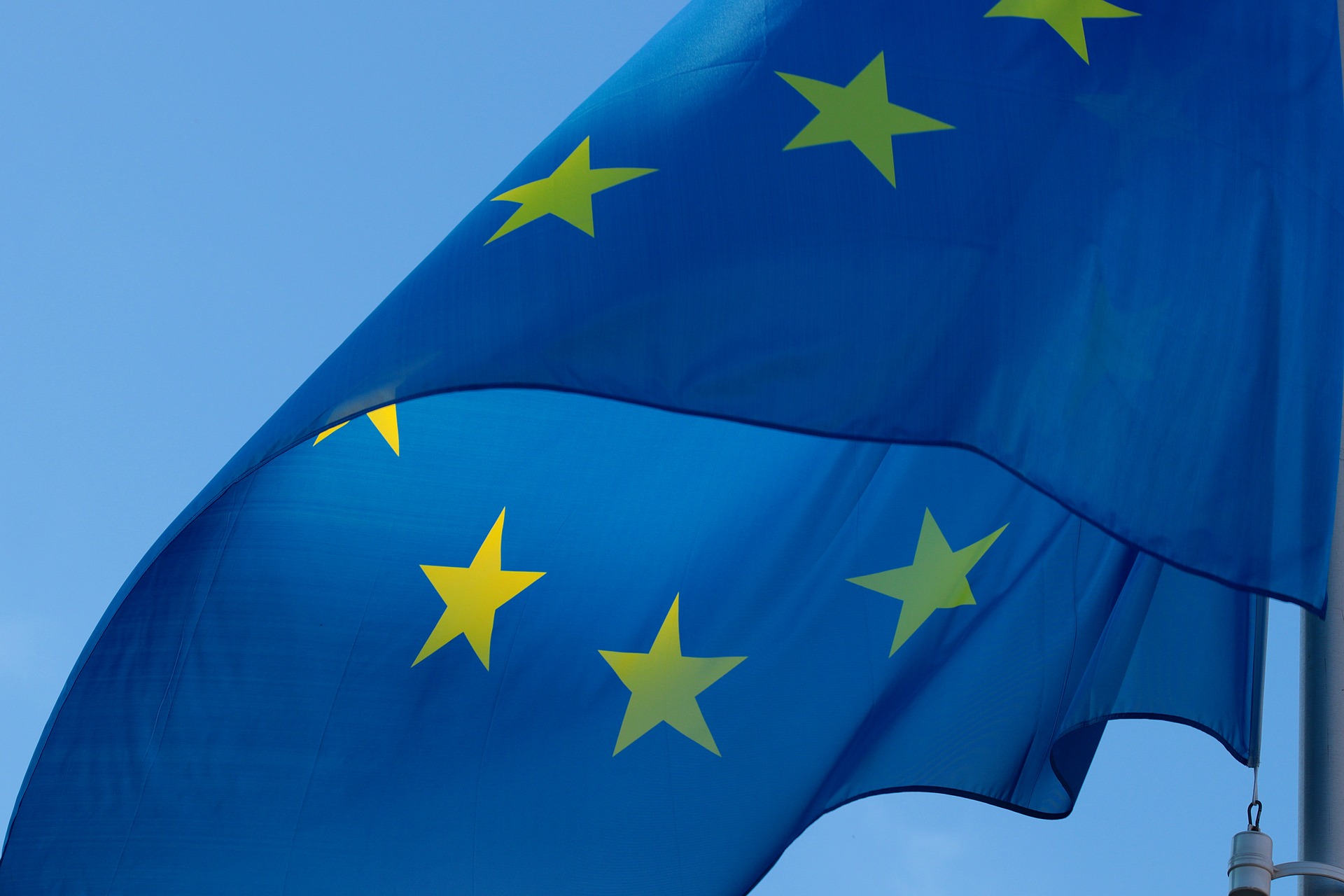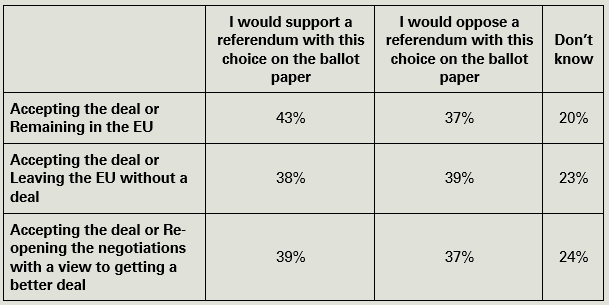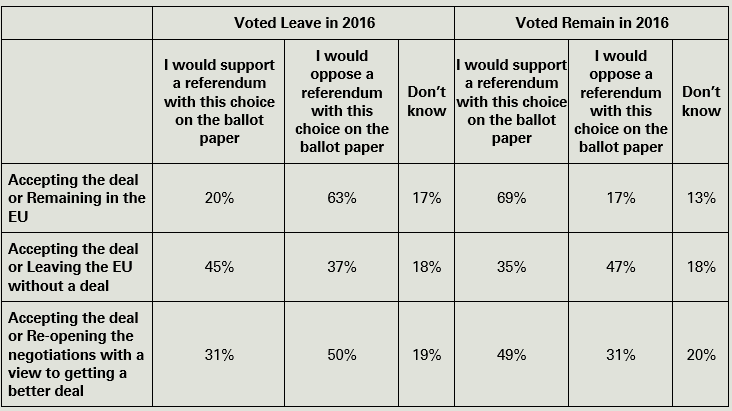
Brexit: What the Nation Really Thinks, Monday 5th November, 8pm, Channel 4
New large sample research for a Brexit special on Channel 4.
Ahead of a live discussion programme tonight on Channel 4, “Brexit: What The Nation Really Thinks”, we interviewed 20,000 people online, across every constituency in the UK, from October 20th – November 2nd. It is by far the biggest independent survey of its kind on Brexit, and will also include new analysis by Survation and Dr. Chris Hanretty of Royal Holloway, University of London using a tool called multilevel regression and post-stratification (MRP).
The headline findings will be revealed on Channel 4 on Monday 5th November at 8pm, and will be analysed by Sir John Curtice.
Confirmed politicians for the debate include:
* David Gauke MP, Justice Secretary
* Barry Gardiner MP, Shadow Trade Secretary
* Caroline Lucas MP, The People’s Vote
* Nigel Farage, Leave Means Leave
We’re releasing one of the programme’s findings today – public attitudes to potential referendum options for a vote on the terms of Brexit.
- Among many questions within the research, we asked the public about their support or opposition to a fresh referendum on the terms of the UK’s Brexit deal. Previous polling has shown that the idea of the public having a say on the terms of the government’s deal enjoys more public support than opposition.
- Our new research shows that responses to questions about whether or not there is support for a new referendum depends on the phrasing of the question, in particular the choices voters might face on a referendum ballot paper.
- To look at this more closely, we asked 20,000 respondents about three potential referendum choices on the terms of the deal. Respondents were asked their support or opposition to a referendum where the options on the ballot paper were between:
1) Accepting the deal or Remaining in the EU
2) Accepting the deal or Leaving the EU without a deal
3) Accepting the deal or Re-opening the negotiations with a view to getting a different deal
The overall results were as follows:
Table 1. If the UK and the EU agree a deal on the terms of Brexit, would you support or oppose holding a referendum in which voters were asked to choose between:

- None of the referendum options put were supported by a majority. A key factor influencing support or opposition was how people voted in the 2016 EU referendum (see table 2).
- Overall, 55% of those interviewed said they would support at least one version of a referendum, 16% indicated they would support any type of referendum on a deal, while 15% opposed all of the potential referendum options. 14% said they did not know, no matter the referendum choice offered
- A “deal or remain” referendum had marginally the most overall support, but was also the most divisive. This referendum option was supported by 69% of 2016 Remain voters and opposed by only 17%. However, among 2016 Leave voters it was opposed by 63%, and supported by only 20%.
Table 2 (By 2016 Referendum vote). If the UK and the EU agree a deal on the terms of Brexit, would you support or oppose holding a referendum in which voters were asked to choose between:

Full data tables for the questions above can be viewed here:
Channel 4 for Monday’s live broadcast “Brexit: What The Nation Really Thinks” airs Monday November 5th at 8pm.
The analysis of questions put to the nation includes topics such as:
- If and how opinions may have changed since the 2016 EU Referendum
- Attitudes to the deal the government is aiming to achieve from the EU
- Views on political leaders
- What type of referendum on the government’s deal might be supported
- What the public feel will be the effect of Brexit on the economy, their own finances, and the NHS
- What the public’s “red lines” are for a deal and what the public could accept to secure an agreement
- Attitudes to immigration in general and specifically to freedom of movement between the UK and EU
- How close a relationship the public want the UK to have with the EU after Brexit
- Attitudes in and to Scotland and Northern Ireland and the constitutional future of a post-Brexit Britain
Have opinions changed since the referendum? MRP Analysis
A key feature of the programme will be a special analysis by Survation and Dr. Chris Hanretty of Royal Holloway, University of London. Using a tool called multilevel regression and post-stratification (MRP) the survey data, collected across every constituency in the UK, will allow the programme to show the state of leave /remain opinion in every local authority. These results will be compared to the actual local authority level leave/remain results from the 2016 referendum to track any change by local authority and region.
Modelled MRP results for opinion in every local authority and region will also be available for attitudes to:
- The Northern Ireland border question
- Freedom of movement after Brexit
- The ability for the UK to make trade deals outside the EU after Brexit
- Whether the UK should continue to follow EU regulations on goods after Brexit
- Current support for the type of deal the UK government is aiming to secure with the EU
Full data tables for the deal referendum questions in this post can be found here:
More information on MRP modelling can be found here:
More information regarding MRP, it’s varied uses and details of Survation’s quarterly MRP Omnibus can be found here.
If you are interested in commissioning a piece of research which uses the MRP technique or to learn more about Survation’s polling capabilities, please contact Harry Mason on 020 3818 96612 or John Gibb on 020 3818 9661 or email researchteam@survation.com.
Would you like to have your own views represented in Survation’s research work?
Survation’s paid consumer opinion panel is now live.
Simply go to: https://panel.survation.com/ – register (1 minute) and we’ll credit your account with 50 points for simply confirming your email and allocate 100 points for taking a very short survey. Points convert to cash which can be withdrawn each time you reach the equivalent of £50.
Survation is a member of the British Polling Council and abides by its rules. To find out more about Survation’s services, and how you can conduct a telephone or online poll for your research needs, please visit our services page.
BPC Statement: All polls are subject to a wide range of potential sources of error. On the basis of the historical record of the polls at recent general elections, there is a 9 in 10 chance that the true value of a party’s support lies within 4 points of the estimates provided by this poll, and a 2 in 3 chance that they lie within 2 points.
< Back

